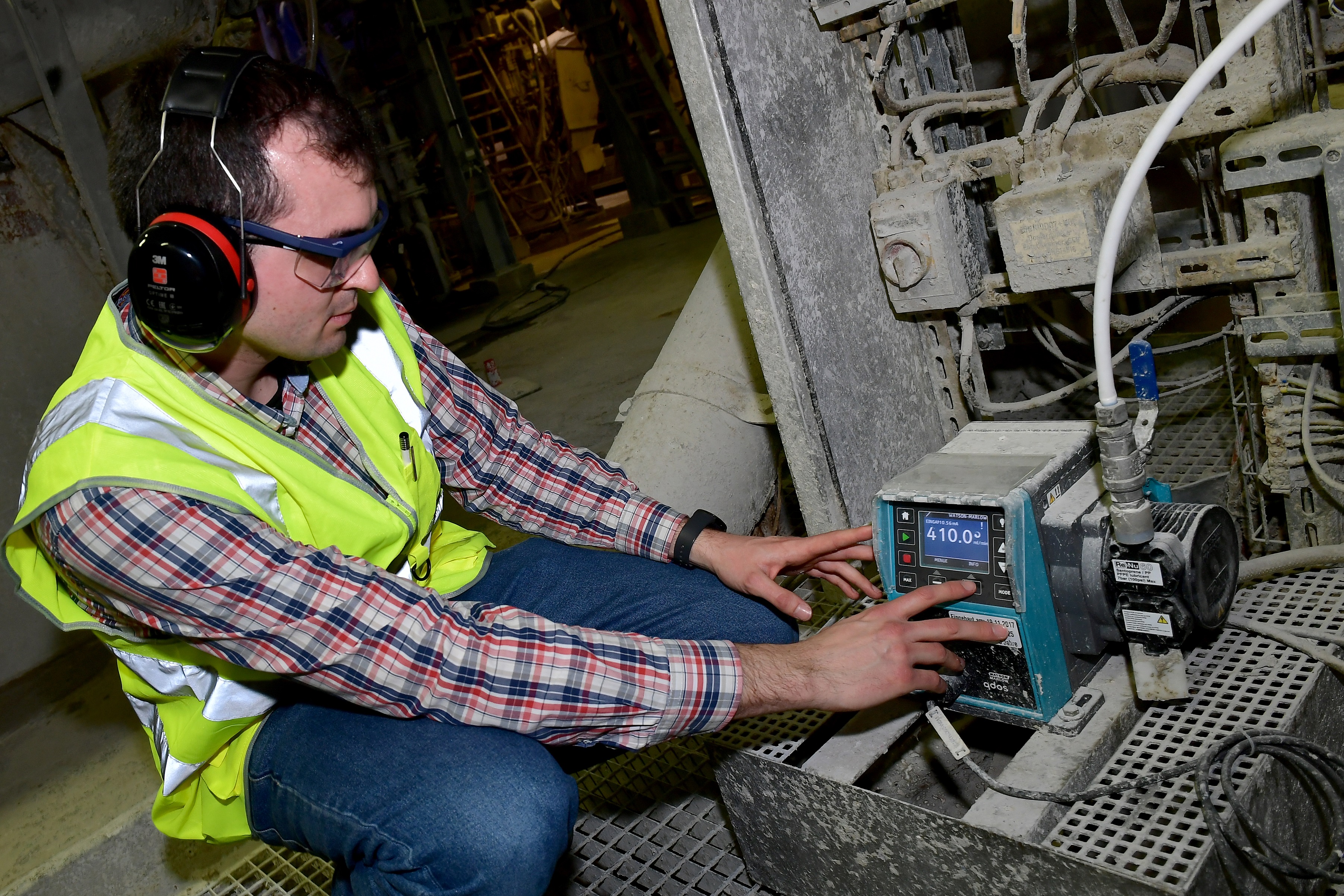Qdos Pumps Facilitate Maintenance in Minutes
 In
In
Moritz J Weig is a respected supplier of folding boxboard and plasterboard made from recovered paper. At the company's head office in Mayen (Germany), about 600 employees work on two carton machines with a total capacity of 630,000 tonnes per year.
Precision and reliability
For modern and efficient paper production, dosing of various chemicals as paper additives or processing aids is unavoidable. On both of Weig’s carton machines, many pumping tasks take place, for which the company relies on different pump types. However, for challenging dosing tasks that demand precision and reliability, Weig is increasingly shifting its focus to Qdos peristaltic pumps from WMFTG.
The first field test for a Qdos pump at Weig was in the wet section on ‘KM3’, a machine for folding boxboard. During sheet formation for the surface layer, a chemical antifoam agent is dosed into the running water. Until recently, solenoid diaphragm pumps were used but were unable to guarantee the necessary long-term accuracy.
“The diaphragm pumps performed dosing tasks with a strongly pulsating flow,” reports Peter Molitor who, as Project Engineer, is responsible for material and water treatment on both carton machines in Weig. “We use a flow meter to control the dosage. However, due to high pulsation, recording the dosage was difficult and unreliable.”
When the dosing is not exact, there can be a negative impact on product quality, sometimes even leading to
“These valves tended to clog, while further problems were caused by torn membranes,” says Molitor. “Replacing a membrane is very laborious and therefore expensive, so in many
The company began searching for alternatives and found what it was looking for with the Qdos dosing pump from WMFTG.
Innovative design
Qdos pumps do not have any membranes, valves or seals. Moreover, they use a particularly innovative design principle: the only wear part is the patented ReNu
Weig opted for the Qdos 60 model, which doses at up to 1,000 ml/min with an accuracy of ±1 percent. Trials with the Qdos peristaltic pump were very successful from the outset, reports Molitor: “Thanks to lower pulsation, recording the dosage in the flow meter is now trouble-free. Strictly speaking, the pump is so accurate that in theory, we will be able to dispense with the use of an additional flow meter in the future.”
And with regard to maintenance, the Qdos pump delivered on its promise, as Molitor confirms: “We have been dosing antifoam for about a year now. Despite 24/7 operation, it is still on its first
Six more pumps
After this experience, it made sense to use Qdos in other applications on the KM3 machine. Since autumn 2017, a total of six have been dosing retention agent.
“The use of Qdos pumps has prevented precious
In terms of investment costs, the Qdos pumps are far superior to the progressive cavity (PC) pumps used previously for this task, which failed repeatedly. A major problem was insufficient dry-running protection; even after a short period of time, dry running would damage the pump.
“The PC pumps stators and rotors barely lasted two years on average before they needed to be replaced,” reports Molitor. “In addition,
Qdos pumps are self-priming and dry-running so in the event of a flow interruption, pumping commences without manual filling
“In contrast with the four hours required to replace a stator or rotor on the PC pumps, the Qdos ReNu
Encouraged by the successful use of Qdos on the KM3, Weig is currently trialing further possible applications on both carton machines, “It is very probable that Qdos will soon be used on our KM6,” concludes Molitor. “Initial trials for dosing flocculants are proving very successful.”



